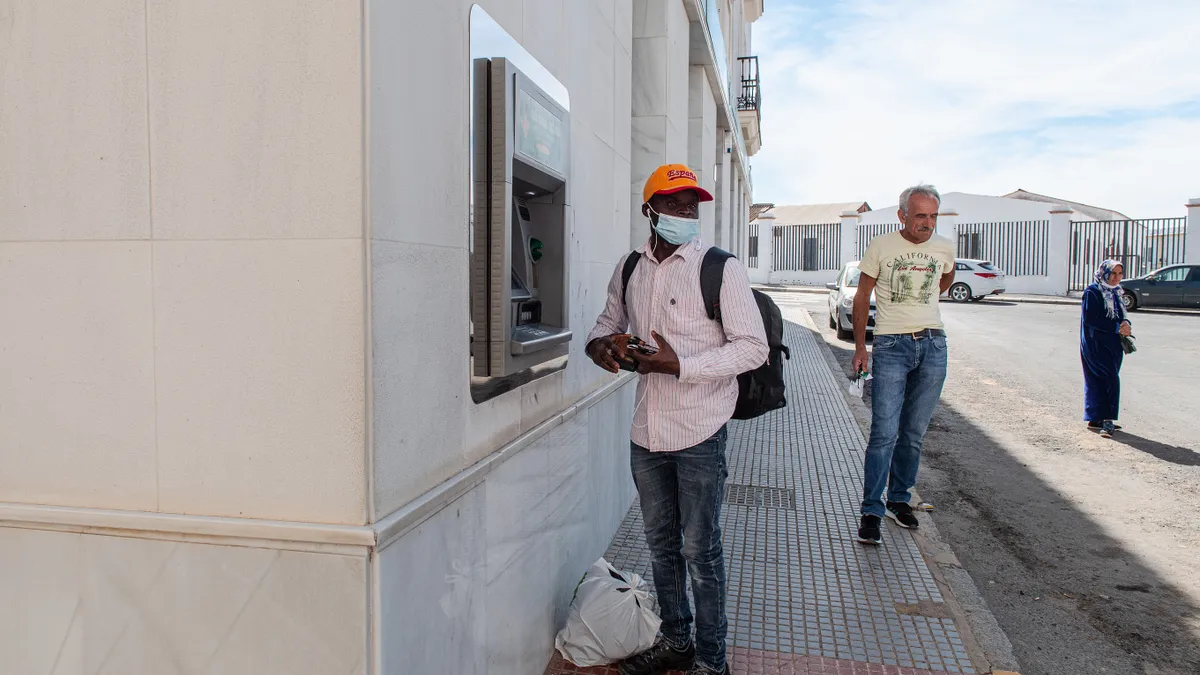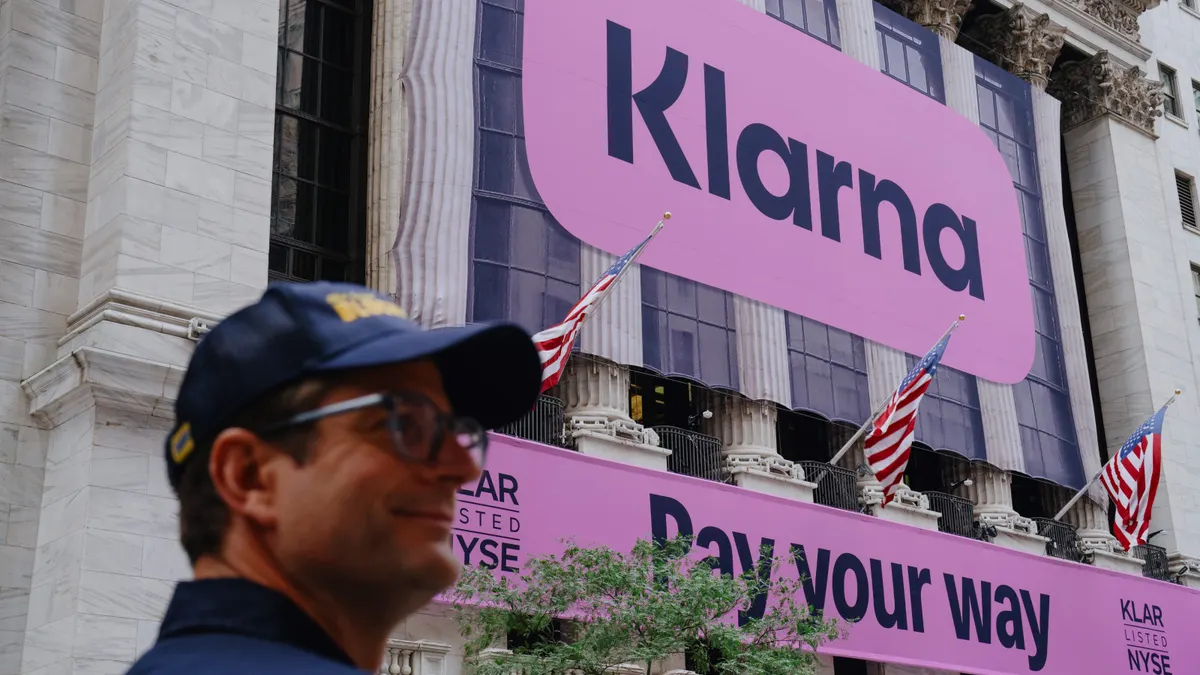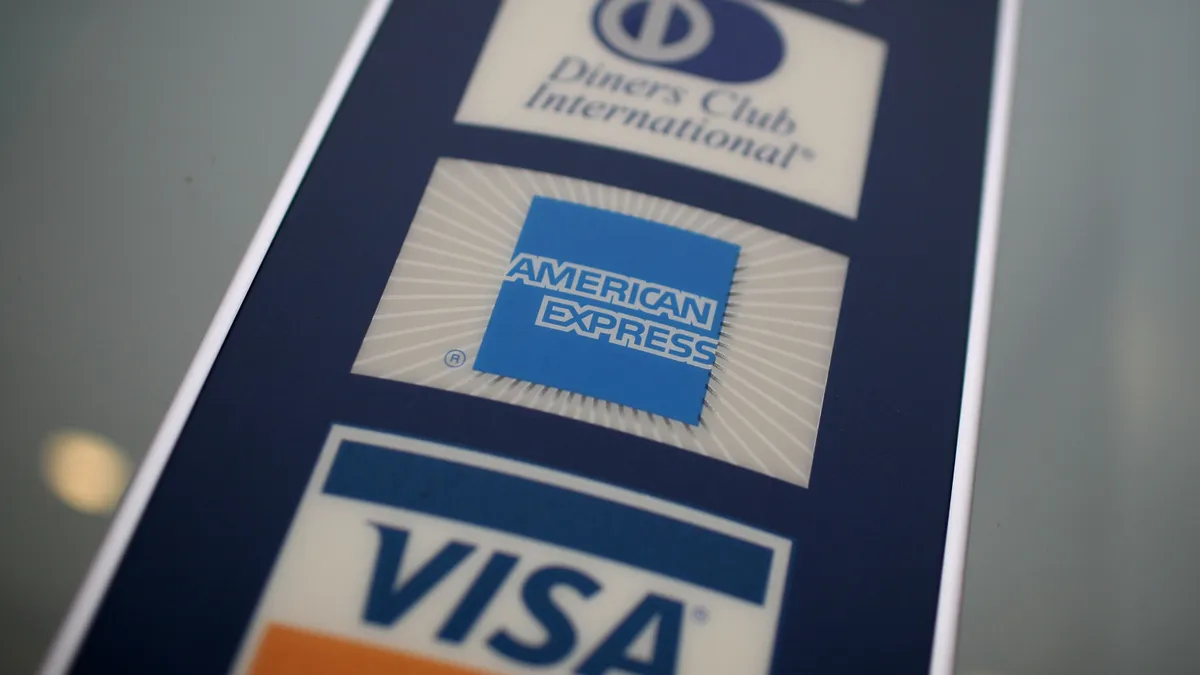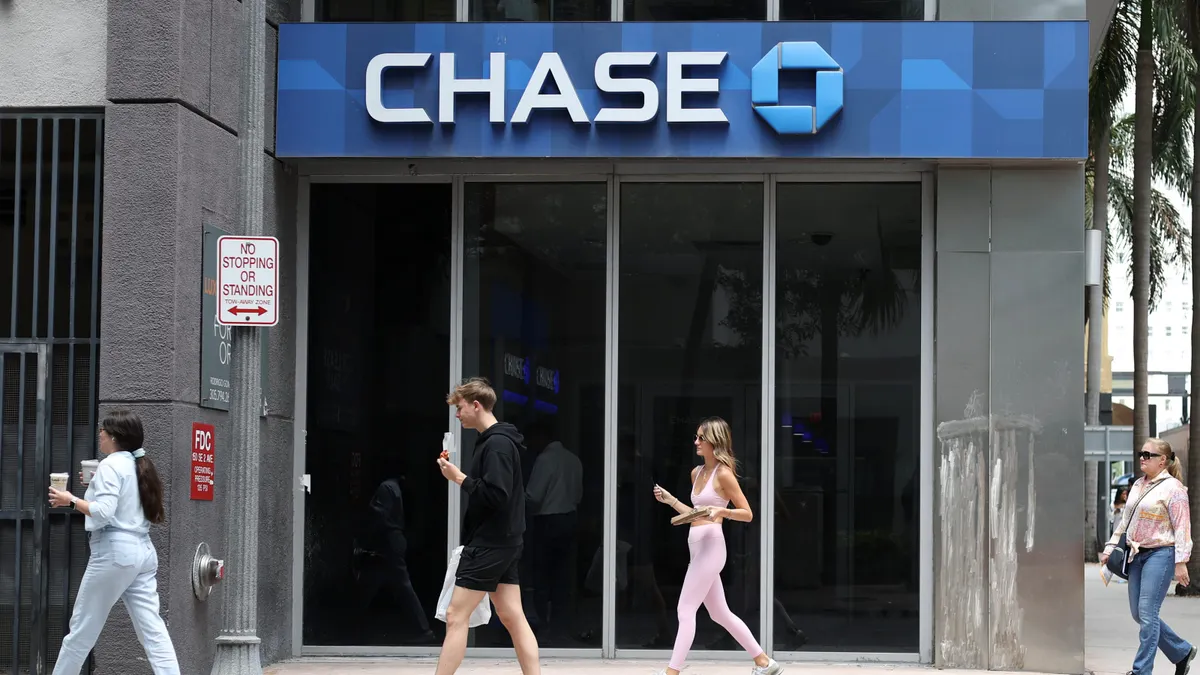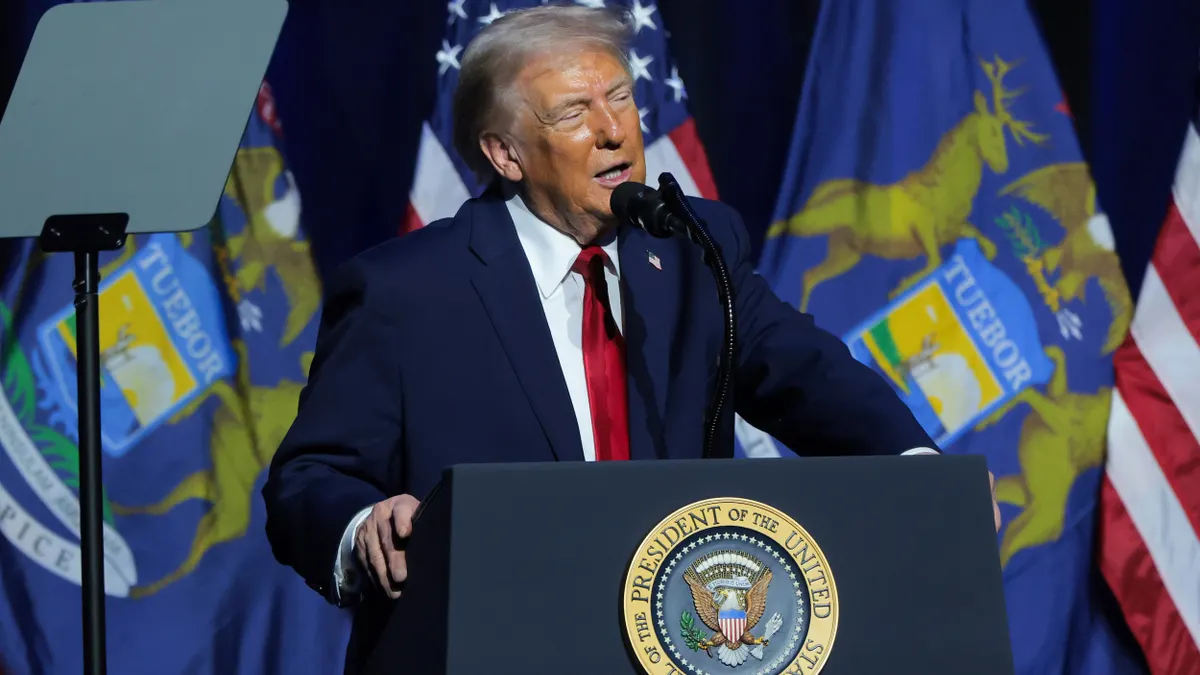MoneyGram International CEO Anthony Soohoo, who landed in the company’s top post last year, aims to digitally overhaul one of the oldest money transfer companies in the world.
His résumé includes leadership posts at retail juggernaut Walmart and broadcast network CBS as well as an early manager position at tech titan Apple. Those posts would seem to equip him for the formidable task at MoneyGram, but there are other experiences, in addition to those, that he believes will aid him in the new role.
When he was 6-years-old, his Chinese parents moved to San Francisco from Hong Kong, and continued to send money home to family members, including via MoneyGram.
His parents migrated to the U.S. “to sacrifice for future generations,” Soohoo said in an interview last month. “That spirit of the immigrant mindset, of kind of doing good for the world, but really paying it forward, I think, still lives today.”
Dallas-based MoneyGram, with corporate roots reaching back to 1940, allowed Soohoo’s parents to share their newfound U.S. resources with relatives in countries all over the world, including Australia and Italy, he said. That story has held true for many migrants tapping MoneyGram services.
Today, MoneyGram is seeking to transform itself after it was purchased in 2022 by a Chicago private equity firm, Madison Dearborn Partners, and taken private in a $1.8 billion deal.
‘Massive opportunity’ for digital transformation
Getting MoneyGram technologically up-to-date won’t be easy, given its extensive operations. The money transfer company services millions of customers in some 200 countries, delivering services in 135 currencies, including cryptocurrencies, at 480,000 retail locations, from U.S. drugstores to Latin America bodegas.
The task to upgrade its operations became all the more important last year after the company suffered a severe service outage that took the business offline for days. Customers railed on social media about the negative impacts of not having access to the financial lifeline.
“I saw a massive opportunity to remake MoneyGram into a modern fintech company that was going to be a lot more competitive, and it was going to be a lot more safe,” Soohoo said.

Cross-border payments sent by consumers, sometimes referred to as remittances, largely flow from the U.S., with the top recipient countries being India, Mexico and China, respectively, according to a World Bank blog post in December. In 2023, about $656 billion in such payments were sent, according to that global organization.
MoneyGram and other legacy players have long catered to unbanked consumers, and those customers aren’t going away anytime soon, explained Cliff Gray, an industry consultant based in Chicago. “MoneyGram at the local bodega is their go-to solution,” Gray said. “It's part of the reason why there's still so many of those little operations.”
Even though MoneyGram is likely benefitting from attractive profit margins serving unbanked customers, that client set isn’t growing so the company needs to create more of a digital presence, like a viable phone app, so it can expand in the digital arena, Gray said.
“If they really need to grow their volume, they've got to reach out to newer players, newer users, which means digital – it means wallets,” Gray said.
Investors changed leadership
Last October, Soohoo succeeded Alex Holmes, who left the company after leading it for nearly nine years and holding other top positions over seven years, including as chief financial officer and chief operating officer.
Holmes attempted to digitize MoneyGram’s business, but progress was slow. In the last year the company’s financial results were public, the annual report for 2022 showed profits swung to $34.2 million, from a $37.9 million loss the prior year, on revenue of about $1.27 billion in both years.
When Madison Dearborn investors appointed Soohoo last year, they were intent on speeding up the company’s evolution. “With the rate of digitization accelerating faster than ever, MoneyGram is at a pivotal moment in its journey to make secure and reliable financial services accessible for more customers across the globe, and Anthony is the right leader with the unique expertise needed to oversee the Company's next chapter of growth,” MDP Managing Director Brendan Barrett said in the release.
The company has taken steps in that direction this year. Last month, MoneyGram rolled out an updated API to facilitate the movement of money between crypto and cash via the MoneyGram network. And in April, the company partnered with the fintech Plaid in an attempt to allow its customers to more easily authenticate their accounts for domestic as well as cross-border transactions. MoneyGram also expanded a partnership with Mastercard that month to let customers use that card network’s credentials in certain markets.

Nonetheless, MoneyGram isn’t the only cross-border payments company trying to burnish its digital offering. It’s got a lot of competition. Rivals include legacy peers like Western Union, but also digital stalwarts such as PayPal, with its Xoom service, and upstarts like Remitly.
“There's tons of competition,” Gray said. “There's a lot of people doing it already and doing it well, in a lot of flavors.”
Beyond that competition, cryptocurrencies present a rival business model to all players, especially as stablecoins make such payments with less volatility, Gray noted.
Tapping new talent for the job
While Soohoo’s credentials focus on product development and customer experiences, he’s recently made headway in filling out a team that adds to the company’s management skill set.
Soohoo hired Luke Tuttle in February as the company’s chief technology officer. He pointed to Tuttle’s experience at buy now, pay later company Klarna as an asset. He also just tapped Ammon Woods from outside the payments industry in April to be the company’s new vice president of sales for the Americas.
MoneyGram is benefitting from Soohoo’s work for retail behemoth Walmart, which has also been seeking to revamp payments, including by bypassing traditional card rails. He’s also tapping knowledge from Apple, which offers one of the most used digital wallets.
Soohoo understands some local economies won’t be as digitally savvy as others. “I think this is going to be a slow adoption for part of the world and really fast for others,” he said at a conference last month. “We’re going to have to make sure our services work for both.”
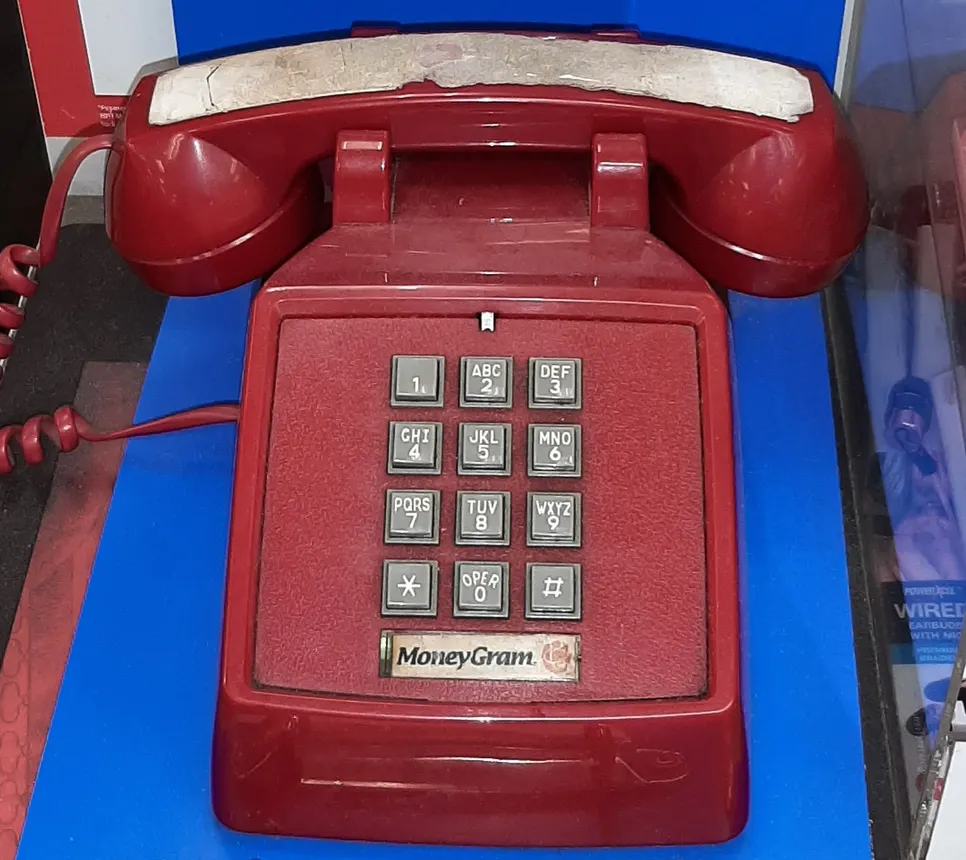
Seven months into his tenure, Soohoo is stingy with specifics on his strategy, despite the need for speed. For instance, he won’t say when MoneyGram’s red phones will disappear from store counters, but he hinted that they’ll be refashioned in some way. For now, he’s keeping people guessing.
When asked about the phones, Soohoo said: “What I would say is that red is the new black, and it could be in the form of the phone that you've highlighted, or any other device that could be red.”
Correction: The story has been updated to identify Ammon Woods as MoneyGram’s vice president of sales for the Americas.


